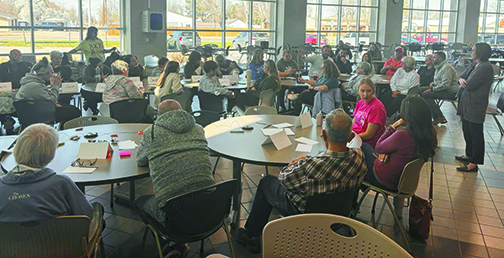By ROBERT PIERCE
• Leader & Times
Early childhood care and education (ECCE) is seemingly an issue all across America, and recently, focus groups looked at specifically workforce issues in Seward County and Stevens County.
The focus groups were led by Kansas Child Care Training Opportunities, along with Kansas State University’s Office of Educational Innovation and Evaluation and K-State Research and Extension.
Liberal Area Coalition for Families Director Sarah Mersdorf-Foreman, who coordinated the events in March, said K-State researchers were looking for participants to take in the group session to help them understand issues related to recruitment and retention and the career pathway for early childhood care and education professionals in communities.
“This was in partnership with K-State,” she said. “What they wanted to know is child care needs within Seward County, what the perception was as far as availability for workforce and to get a temperature on the community as far as how they feel about child care.”
Current ECCE professionals individuals who have left the profession within the past five years and community members concerned about the recruitment and retention of the ECCE workforce were invited to participate.
Mersdorf-Foreman said she was unsure of how to gauge the local child care situation, but she did say there seems to be a constant need for infant care.
“That seems to be the most in demand – quality accessible affordable infant care – and very difficult to find,” she said.
Mersdorf-Foreman, though, did say there are many incentives for daycare providers to get started.
“K-State used us as a go between to reach out into the community and to host the event,” she said. “The participation was really great. I think we had about 35 in Seward County, and we had 45 in Stevens County.”
Mersdorf-Foreman said other local child care issues include a lack of quality affordable child care and, primarily licensed child care providers.
With the format of the recent events being more in the sense of a focus group, Mersdorf-Foreman said in that setting, solutions were not determined at the time of the meetings, but rather information is being taken back to research teams who will later bring back what they heard to local leaders.
“Then we will address what the next steps are,” she said.








